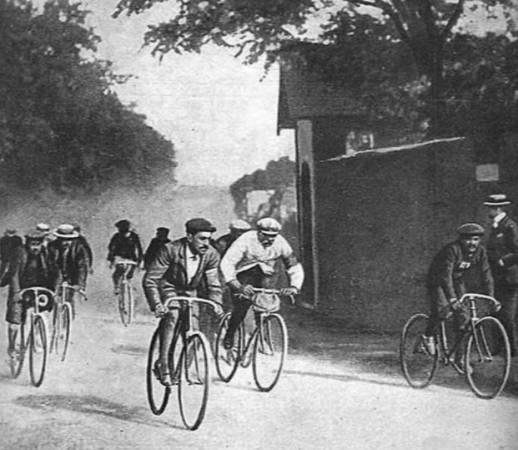Is sport too commercialised?

Is sport in general, and the Olympics in particular, becoming too commercial and too nationalistic as well?
These are questions that must be on many people’s lips as we watch the present goings-on at Sochi, where millions, if not billions, of dollars were spent on building a complete new sports complex from the ground up, plus a village to house all the athletes taking part. And that is just the start, with all the participants having to wear specially designed clothing, suitable for each individual sport and loudly shouting to the world which country the sportsperson comes from and represents.
Gone are the days when a runner put on a vest, black shorts that reached almost to the knees and what were called “daps” or “plimsoles” on their feet, all gear very similar to that worn by Roger Banister when he broke the four minute mile. Now we have Lycra tops and skimpy shorts, both as tight as a second skin to reduce ‘drag’ through the air, and shoes with padding here, stiffeners there and tread patterns that a tyre designer would be proud of, all supposedly meant to improve performance! We’re swiftly approaching the stage where it is the clothing that does all the work in an event, with the “athlete” merely being the skeleton on which the suits rest while doing their work.
I recently found a photograph of the very first ‘Tour de France’ race, a copy of which I have attached to this story. Just look at the men depicted here; they look more like a group of workers rushing to get out of the factory gates at the end of their shift than elite cyclists riding in one of the most iconic events on the sports calendar. Two of them are even wearing straw boaters and the rest appear to be relying on cloth caps to give them head protection in the event of a crash! Their machines too, are a far cry from the multi-thousand-dollar, carbon-fibre lightweight things that carry them today – looking again at the photo, the bikes being ridden don’t seem to even have the benefit of brakes; I can only guess that they worked on the ‘fixed-wheel’ principal, where if you stopped peddling the back wheel stopped turning and hopefully, so did the bike!
Another thing of course, that has caused gigantic changes to most sports, not all of them good, is the professionalisation of most of them. When I was young, (many more years ago than I care to admit!), all the top tennis players were amateur, as were Olympic athletes, the Captains of professional cricket clubs and all rugby union players. In fact, the professionals of rugby league were rather looked down on by the ‘union’ elite, who were far above indulging in such nastiness as being paid for playing.
I guess television was the catalyst which caused most of these problems and changes. The companies were prepared to pay large sums to clubs and organisations, for the broadcasting rights to their events and games, something that worked well at first, both for the sports bodies and the television companies. Until, that is, the players decided that, as they were the people who actually provided the entertainment, they should be paid for it! Within a very short while, the floodgates were opened and nowadays we hear very little talk of ‘amateurs’ at all. On top of that, many companies sprang up, with the sole purpose of providing the ‘gear’ this new breed was deemed to require; clothing, footwear and equipment.
The trouble is, what we still tend to call ‘sport’, in fact has very little to do with that word; it is now ‘big business’ and the actual sporting content takes a very small second place to that.
Very sad really, sport as I knew it when I was a youngster was fun, but there’s not much room for fun these days – it all has to make money, or its dumped!
What do you think about the commercialisation and professionalisation of sport? Has sport lost its ‘fun’?









 Proudly Australian owned and operated
Proudly Australian owned and operated